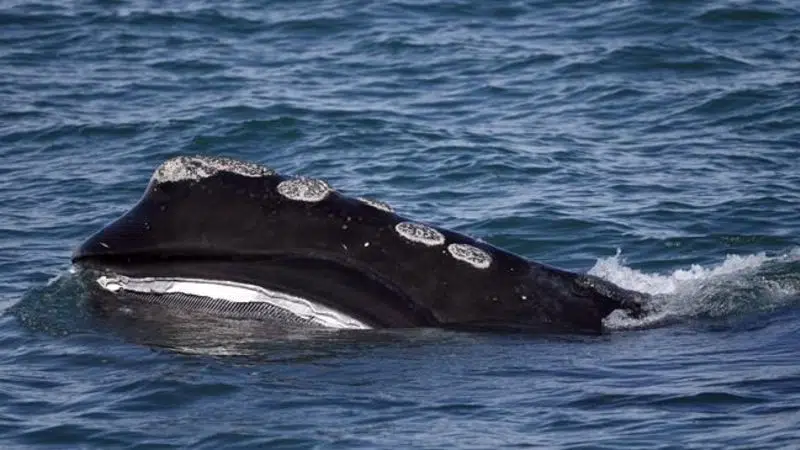
Conservation group calls death of right whale in Gulf of St. Lawrence ‘devastating’
FREDERICTON — The head of a wildlife protection group is calling news of a dead right whale in the Gulf of St. Lawrence devastating, saying the loss of even one of the whales takes a toll on the endangered population.
Tonya Wimmer of the Marine Animal Response Society commented after news that a surveillance flight spotted a dead right whale in the gulf Tuesday.
“Every animal at this point counts,” Wimmer said Wednesday. “It is devastating to hear that a dead right whale has been found, especially when there has been an incredible amount of work to protect them.”


